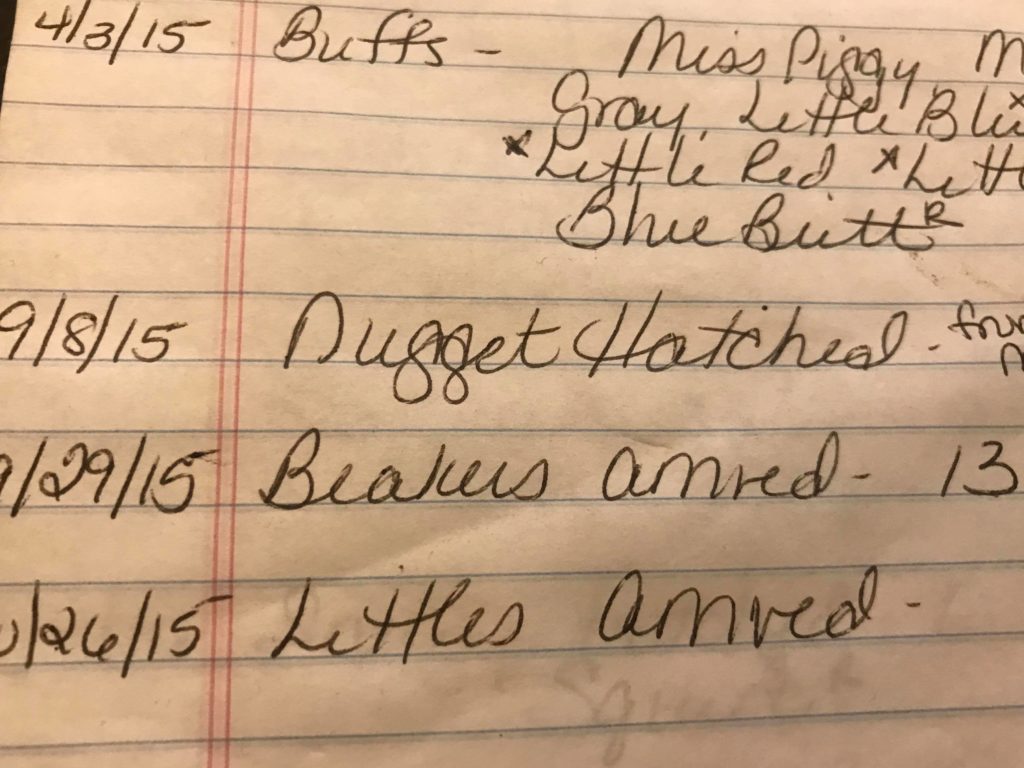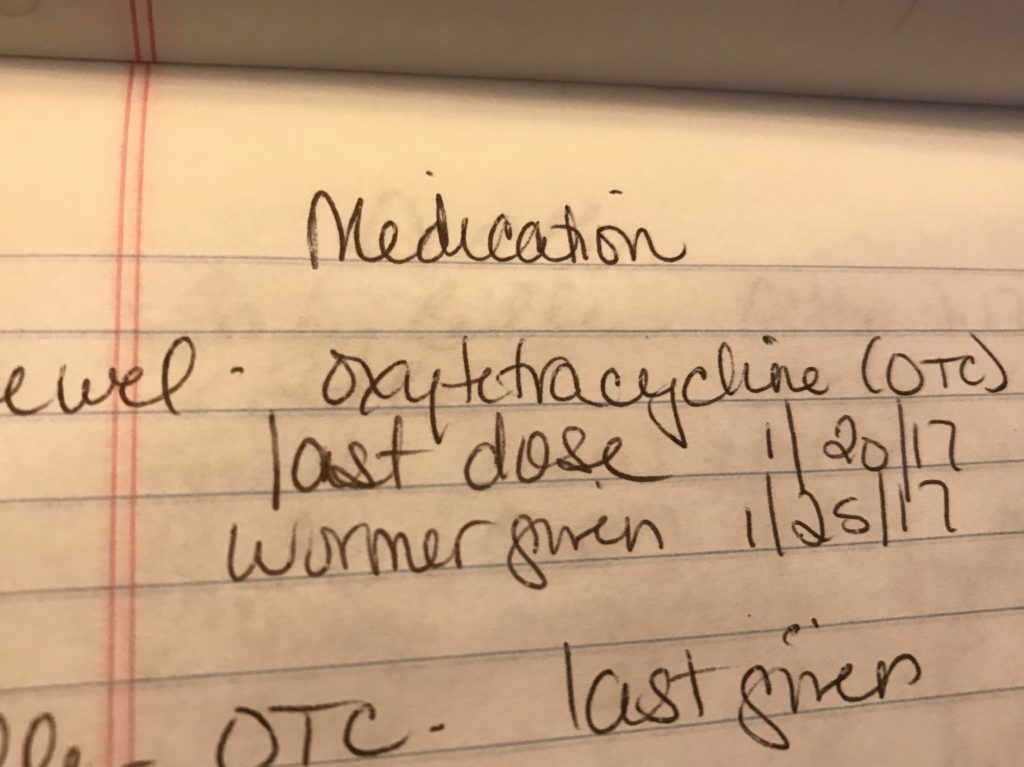Traci DeLore helps us understand how to keep some useful flock records.
Keeping flock records might not seem necessary when you have a small backyard flock. However, over time, you may wish you had a written record of certain things to look back on.
I was about a year into keeping chickens when I realized it would be a good idea to keep track of at least some things that happened within the flock. So I grabbed a junior legal pad that I had handy and voila! My flock record was born.
Here are the things I note in my record and why.
Hatches and arrivals

I love being able to look back and know exactly when a chicken hatched.
The first thing I started keeping track of is when I acquired chickens and where they came from. Specifically, I note the date and whether I bought them at the feed store or they hatched under one of my broody hens.
I love that I can look back and see when Nugget, the very first chick we ever hatched here, arrived. I can also see that not quite a year later, Nugget herself sat on eggs and hatched two chicks!

Nugget wasn’t even a year old when she decided to sit on some eggs and hatched two chicks.
This is helpful for remembering the age of various chickens. Trust me, time flies by faster than you think with your chickens. Before you know it, that fuzzy little chick you remember is three years old. That’s good to know when you’re trying to figure out why she isn’t laying as much as she used to.
If you have a rooster and hatch at home, it’s helpful to know his age as well. Unfortunately while roosters gain confidence as flock leaders as they age, they lose fertility. Knowing how old your rooster is can help you figure out why your hatch rate is dropping.
Medications

It’s very helpful to know when you gave medications and which flock members received them.
I don’t do a whole lot of medicating in my flock, but I have given antibiotics when I’ve had a sick chicken. Writing down what I gave and when I gave it helps keep track of doses.
In other cases, if you’ve had to treat the whole flock with something and need to withhold eggs? Well, having a record of what you gave and when you gave it lets you know when it will be safe to use their eggs again. This way you aren’t scratching your head and wondering when you gave that medication.
Keeping track of medications also lets you know if what you used was actually effective or not. Treating sick chickens can be difficult since chickens tend to hide their illness until they are at death’s door. It’s good to have a record of anything you tried that worked.
Deaths

Whether from accident, illness or age, death is going to happen in your flock. Keeping track of deaths can help you notice trends and take steps to change them.
Death is inevitable no matter the size of your flock. You may only keep track of the date a chicken died. I keep a little more detailed record when I can and note the cause. In some cases, I have done a necropsy to determine a cause.
This record actually helped me notice some trends in my flock. After a number of my red sex link hens died from salpingitis, I started steering away from them.
The records can be as detailed or as basic as you like. They can be in a notebook, on a computer document, or even as a note in your phone. However you keep them, I think you’ll find that keeping flock records will come in handy.
Traci DeLore grew up around chickens on her family’s farm, but didn’t start keeping her own chickens until she was in her 40s. Her desire to keep chickens came from a desire to have her own fresh eggs from chickens she knew were well cared for and happy. Traci started with six chickens – and then chicken math took over. These days, she has about 60 chickens — and three “rotten” ducks. (I say this because having ducks is like living with toddlers.) Traci also raises and processes her own meat chickens on occasion.












